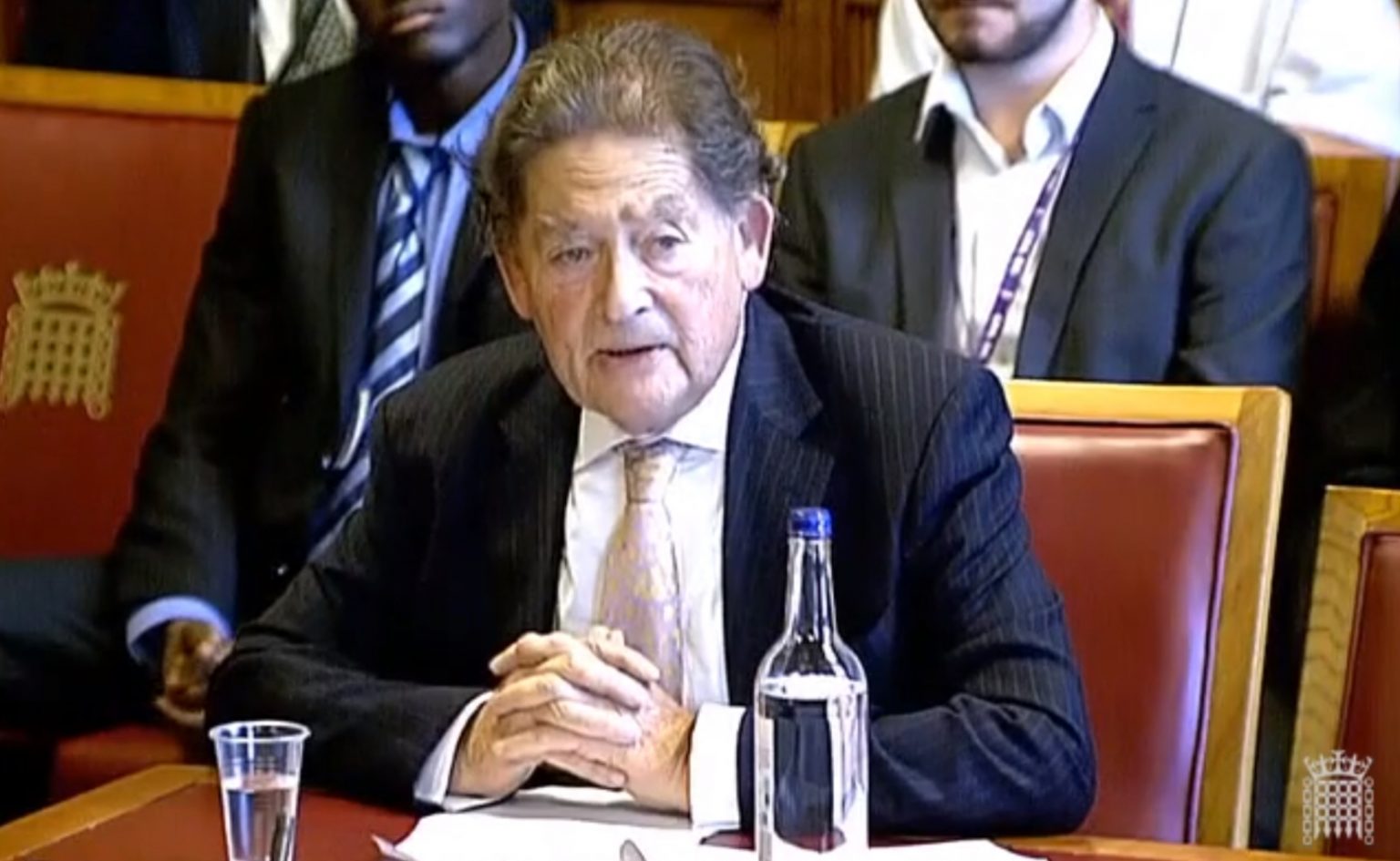Climate science denial group, the Global Warming Policy Forum (GWPF), has told Lords that the government should conduct a “wholesale re-evaluation of its decarbonisation policies”, “urgently amend the Fifth Carbon Budget”, and reconsider “all relevant EU legislation” in the wake of Brexit.
Of the 64 written submissions to an inquiry by the House of Lords’ Economic Affairs Committee, the GWPF’s was the only one to suggest Brexit should lead the government to revise the UK’s climate plans.
The committee is conducting a post-Brexit inquiry into “The Economics of UK Energy Policy”. It was accepting written evidence until September 30, and will continue to gather oral evidence over the coming weeks for a report due in 2017.
The GWPF’s submission to the inquiry, published online this month, shows once again how fringe climate denial groups are seeking to use the UK’s decision to leave the EU as an opportunity to push their policy agenda.
In doing so, the GWPF implicitly aligns itself with the recently founded Clexit group, which includes climate science denialists such as British hereditary peer Lord Christopher Monckton, and Marc Morano of the US-based fossil fuel funded think tank Committee for a Constructive Tomorrow (CFACT).
All Alone
The committee explicitly states that the government’s “commitment to reducing carbon emissions is taken as given so the inquiry will not consider arguments about the science behind climate change”.
While that may seem odd, the committee has a chequered past when it comes to investigating climate policy.
In 2005, the committee – with the GWPF’s founding chairman Nigel Lawson as a member – conducted an inquiry that criticised the findings of the Intergovernmental Panel on Climate Change (IPCC), and recommended that the UK Treasury play a more active role in dictating policy.
The report was criticised as “strikingly inconsistent” at the time by the Carbon Trust’s then Cheif Economist, Professor Michael Grubb.
For the current inquiry, with the option of spreading climate science denial cut off, the GWPF has attacked the UK’s decision to include climate considerations in the design of its energy policy.
In its submission, it says Britain’s decision to leave the EU would allow the UK to “manage its urgent security of supply challenges” and reform its “unilateral and hugely expensive climate and green energy targets”.
This echoes a call from Lawson, who previously told the inquiry that the government should seek to “make the decarbonisation agenda subordinate to the objective of supplying the British economy and households with cheap and reliable energy”.
Even the Energy Intensive Users Group – which represents some of the UK’s most carbon intensive industries – does not go that far. It accepts that the UK will continue to seek to decarbonise its economy, even if leaving the EU may create opportunities for policy reform.
Increasing Insecurity
Unsurprisingly, there are holes in the GWPF’s arguments.
Leaving the EU is likely to make the UK’s energy supply less secure, according to Paul Ekins, Professor of Energy and Environment Policy at UCL. He has previously pointed out that, in contrast to the GWPF’s assertions:
“Outside the EU the UK will either exist in an energy isolation that is both more expensive and less secure than being part of the internal energy market, or it will be a second-tier member of that market, bound to accept the rules made by EU members but having no influence over how they are agreed.”
Leaving the EU could also mean surrendering other benefits such as access to international transmission networks, or effective energy efficiency strategies, according to submissions to the inquiry from Professor Richard Green of Imperial College London, and the Association for Environment Conscious Building, respectively.
Brexit may also make it harder for the UK to access much-needed investment in the energy sector, a survey by management consultancy EY suggests.
In their submissions to the inquiry, energy companies RWE, Engie, Scottish Renewables, and Good Energy all express concern that Brexit increases market uncertainty. The companies call on the government to clarify how it plans to meets the UK’s climate goals, rather than demanding the country abandon its decarbonisation plans.
Unreliable Evidence
The GWPF makes other claims that should make lawmakers question the strength of the group’s advice.
It says that lower than expected fossil fuel prices have “undermined the prospects of renewable technologies becoming competitive”. But all indicators suggest renewables remain in rude health, despite record low oil prices.
The International Energy Agency recently revised upwards its five-year growth forecast for renewables, citing “strong policy support in key countries and sharp cost reductions”.
The GWPF further claims that support for these technologies is “unreasonably excessive compared with the estimated social cost of carbon” – a measure of the damage to society from each additional tonne of carbon dioxide emitted.
It selectively cites one study from the former chairman of its academic advisory council, Ross McKitrick, that says this may be as low as $3 to $30 per tonne. That’s certainly on the low end.
Referencing the social cost of carbon, the IPCC says the “incremental impact of emitting a tonne of carbon dioxide lies between a few dollars and several hundreds of dollars per tonne of carbon.”
The US government generally uses a price of around $37 per tonne as a guide for policy, though some studies suggest this should be as high as $220.
Even Exxon uses a carbon price of around $80 per tonne in its internal modelling.
So in the absence of denying the science of climate change, the GWPF chooses to deny the significance of the impacts of emitting carbon dioxide.
And just like the its Clexit counterparts, the GWPF is using Brexit as an excuse to push its climate denial agenda.
Subscribe to our newsletter
Stay up to date with DeSmog news and alerts






